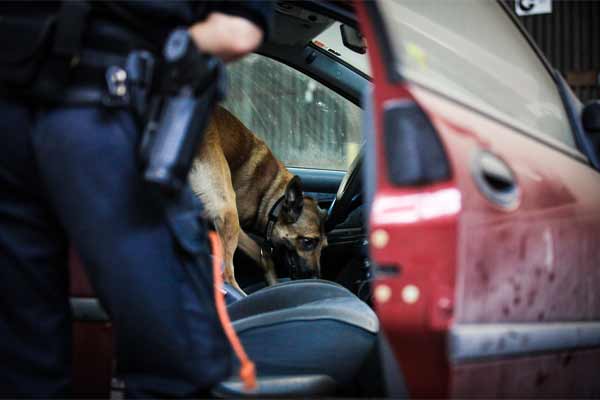Can You Legally Record Police Officers?
11/09/2025
A police officer does not have the right to search your car without a valid reason. Before searching your car they would need to adhere to certain requirements. When authorities see something that is clearly visible they can be able to know if the person is committing a crime. They can notice something that is either on or under the car seat.
The authorities can ask for permission to search your car and if you do not give them permission to do so then they will have to get a warrant so that they can get into your car and collect the evidence needed. If you are taken in because of drunk driving or driving under influence there are times when the car will be impounded.

Drunk driving is common in the country and in some instances, individuals that have been arrested for a DUI have evidence of another crime in the car. It is important to understand that even though a police officer should not search your vehicle without a warrant there are specific circumstances where the police may legally search your vehicle. The most common question for people that have been arrested for a DUI is can cops search your car after a DUI? Here are some situations where they can.
Unlawful searches and seizures under the fourth amendment have made arbitrary police search to be illegal. This means that if the police do search your car without you giving them permission to do so it is a violation of your constitutional rights. Before searching your vehicle an officer needs to have reason to believe that a crime such as a DUI has been committed.
However, an officer does not always need to have a search warrant in order to search a motor vehicle. There are several tactics that can result in order to legally look for evidence in your car. Here are some of the ways methods that they can use:

After a police officer pulls you over for a suspected Dui and they notice an open bottle of alcoholic content or intoxicating substance on the passenger seat or in plain sight they will have enough reason to take you in. They will not need to conduct a search neither will they need to get a warrant to conduct a vehicle search since the evidence is visible on the passenger compartment.
If the authorities ask you to open your trunk or vehicle so they can see what is inside and you choose to comply, they will go ahead to conduct an automobile search without a valid search warrant.
If the police officer has reasonable suspicion they can search your car. If the police officer had seen activities that implied that there was an ongoing drug deal from the window of the car or there was an odor of alcohol they will have reason to search your car for the drugs.
Related: Illinois DUI Process
If you were in a vehicle during a police arrest or if they believe that the car has evidence that is related to driving under influence arrest they can freely search your vehicle. The definition of occupying a vehicle, in this case, can be complex and it is open to debate in a DUI case.
Most of the time when you are being detained by authorities and you are still not arrested the police officer can’t search your car. However, the warrant requirement can change if the police officer believes that the vehicle occupant is involved in criminal activity and may be in possession of a weapon. According to the stop and frisk rules, the officer can order you to get out of the car, search you, and the vehicle for any dangerous weapons.
An inventory search can be conducted after a car has been impounded so the authorities can find out what is in the vehicle.
The police will use any of the above reasons to find search your vehicle and anything that they find in your car after the search will be used as evidence.
Related: Question to Ask a DUI Lawyer
Even with all the opportunities that the police have to conduct a legal search, illegal searches are not uncommon. Here are examples of illegal searches that authorities can conduct:

The rules of conducting a search can be complex and it is important to have a professional DUI lawyer review your case if there is incriminating evidence that has been found in your car that can be used against you. A lawyer can either find out that your rights were violated or there were irregularities in the search.
Your criminal defense lawyer can file a motion so that evidence from a search can be excluded if the search was done illegally. Evidence that has been excluded cannot be used in a case. It is common for the prosecution to cave and offer the accused a way out once the key evidence from a DUI case is excluded. It is possible for DUI charges to be dropped after that.
You should avoid making any negative assumptions about your case and instead have a DUI lawyer review the case so they can give you a professional opinion.
If a law enforcement officer stops you by the road and asks you to provide vehicle registration, your name, and license you must comply. However, you should be aware of your rights. You should remain calm, avoid physically interfering with the police officer’s duties, and assert your rights in a polite manner while dealing with the police. You should as well know that you are not legally obligated to provide consent to the police officer to search your vehicle neither are you obligated to answer any questions.
If you need answers on when law enforcement officers can search your car or you need assistance with a warrantless search you can contact our criminal defense attorneys at Ktenas Law. It is a serious matter when a police officer searches your vehicle. Our experienced attorney can review the evidence in your case and will advise you on whether to file a motion that will suppress evidence that has been obtained from unreasonable searches.
A criminal defense attorney from our law firm can offer legal representation services for a variety of DUI cases. Schedule an initial consultation at (312) 756-8652 and let us evaluate your case while offering our legal expertise.

